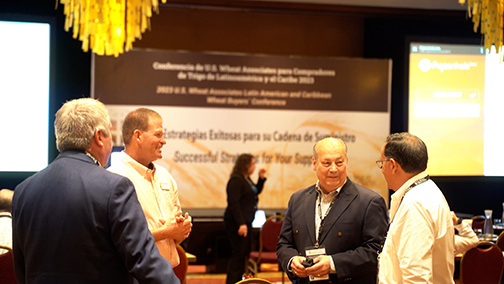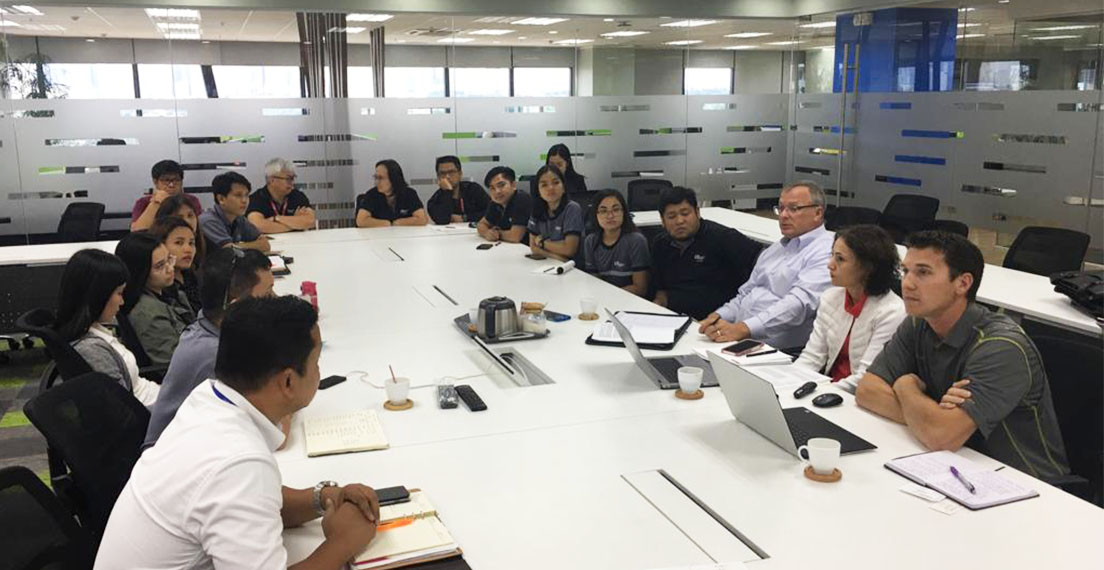With funding from the Market Access Program (MAP), U.S. Wheat Associates (USW) educated some top U.S. wheat customers in the Caribbean Region about the methods and mechanics of grain purchasing and trading. Hosted at the Northern Crops Institute in North Dakota, the customized procurement course attracted milling companies from the Dominican Republic, Haiti, Mexico, Panama and Trinidad &Tobago.
Home to nearly 30 million people, the Caribbean’s proximity to the U.S. provides competitive advantage for U.S. wheat exports. USW considers the region a growth market for U.S. wheat and targets islands that have flour mills and sizeable end-product manufacturing. Giving millers updated tools to make purchasing decisions is seen as a solid business decision for the U.S. wheat industry.
Helping Customers See More Value
USW’s Grain Purchasing Short Course took place in June 2022 with a focus on U.S. wheat supply, global demand and grain merchandising. The course also included a “Getting the Wheat Value You Want” presentation by USW and an opportunity to practice futures trading at North Dakota State University. Visits to the Port of Duluth-Superior, the CHS export facility in Duluth and meetings with the area grain trade were also part of the experience.
During follow-ups to the course, A Dominican Republic mill purchased an additional 3,000 metric tons (MT) of U.S. soft red winter (SRW) wheat and an additional 2,000 MT of hard red winter (HRW) wheat valued at approximately $1.9 million. A Haitian mill reported that, because of what it learned in the course, it was able to request and evaluate basis offers, FOB offers and CIF offers. Savings realized using these methods increased satisfaction with U.S. wheat. The company reported purchases of 36,000 MT of U.S. HRW from July 2022 through February 2023 valued at approximately $14.6 million.



